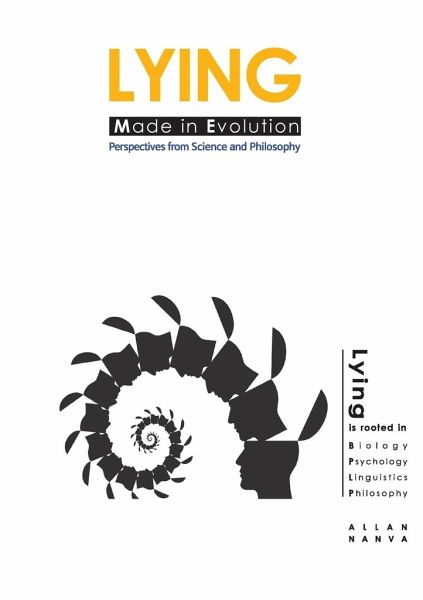
Lying
Perspective from Science and Philosophy

PAYBACK Punkte
11 °P sammeln!
Science and philosophy join forces in this book to explain the phenomenon of deceptive behaviour. Darwin is here to tell us that deception is rooted in evolution; Freud talks about the psychology of lying; Jean Piaget and Noam Chomsky comment on language development and the onset of lying; Plato, Aristotle, Saint Augustine, Thomas Aquinas, Immanuel Kant, Thomas Hobbes, David Hume, Jean-Jacques Rousseau, A. J. Ayer and many others express their views on moral and ethical aspects of lying. It is refreshing to read about Utilitarian lying, Consequentialism, Hedonism and Visceral morality concisel...
Science and philosophy join forces in this book to explain the phenomenon of deceptive behaviour. Darwin is here to tell us that deception is rooted in evolution; Freud talks about the psychology of lying; Jean Piaget and Noam Chomsky comment on language development and the onset of lying; Plato, Aristotle, Saint Augustine, Thomas Aquinas, Immanuel Kant, Thomas Hobbes, David Hume, Jean-Jacques Rousseau, A. J. Ayer and many others express their views on moral and ethical aspects of lying. It is refreshing to read about Utilitarian lying, Consequentialism, Hedonism and Visceral morality concisely and in such clear language. Pinocchio's nose is given scientific characteristics, its functions analogized to the polygraph and the fMRI machine. The author presents wide ranging information scarcely found in one volume. This introductory book is destined to find its deserving place on many a curious shelf.














